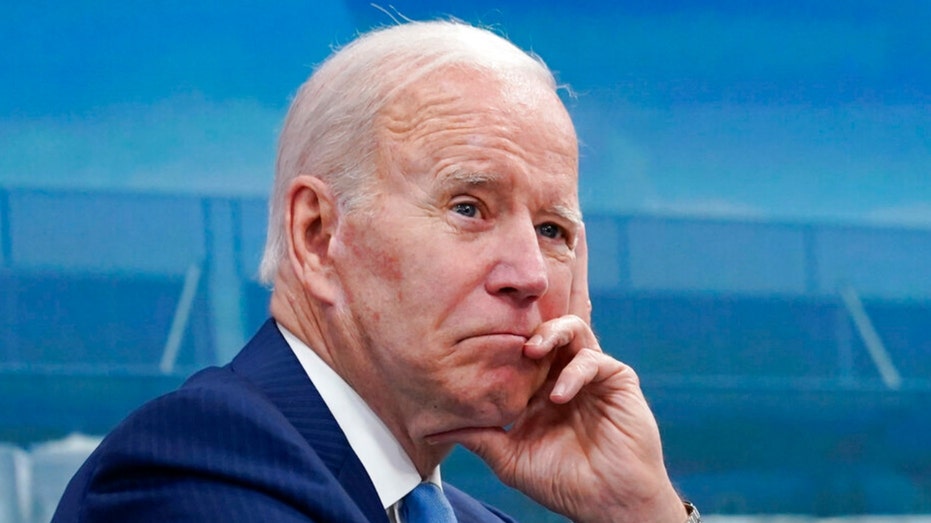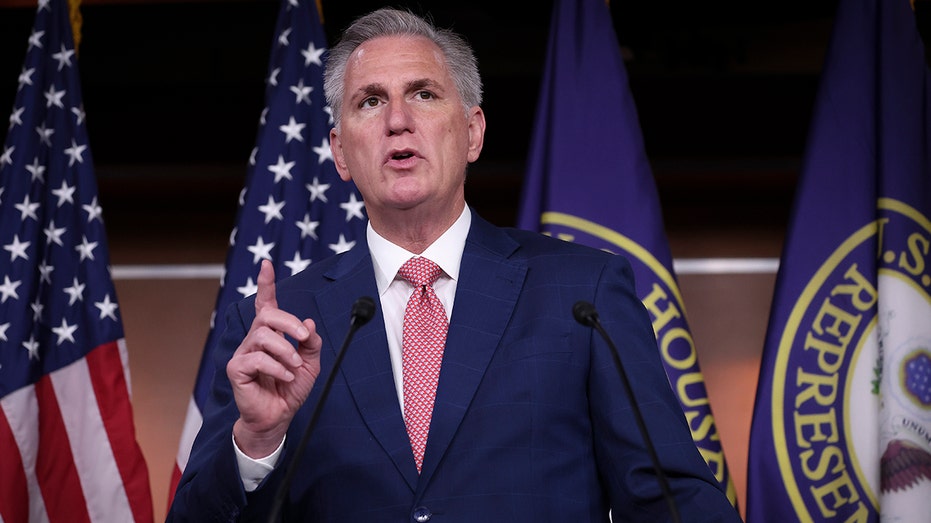The next US debt crisis: Making hundreds of billions in interest payments
Net interest on the debt could be more than $500 billion for fiscal year 2022
President Biden has officially lost the ‘shale revolution’ for energy independence: Phil Flynn
The Price Futures Group senior account executive Phil Flynn reacts to OPEC’s decision to cut oil prices and how that will impact U.S. gas prices on ‘Mornings with Maria.’
The U.S. national debt keeps rising and to make matters worse, interest payments on the debt are rising at an even faster pace.
Next week, the Treasury Department will release data from the final month of fiscal year (FY) 2022, including how much the government spent to service $31 trillion in national debt, the highest it has reached in U.S. history.
According to Treasury data through August, which counts all but the final month of FY22, net interest payments on the debt totaled $471 billion. That is already much higher than the initial White House projection of $357 billion and above Treasury’s mid-year assessment of $441 billion; adding in September's data could send the total over $500 billion.
At that level, interest on the debt is larger than the discretionary budgets of most federal departments and rivals the amount of money Congress gives to the Department of Defense each year.
NATIONAL DEBT SURPASSES $31 TRILLION

Treasury Secretary Janet Yellen faces a rising national debt and interest payments on the debt that are rising even faster. (Jose Luis Magana, File / AP Newsroom)
Experts warn that one reason why the cost of servicing the debt was underestimated is because those estimates were made when interest rates were lower. For the last several months, the Federal Reserve has ratcheted up interest rates, which means when outstanding federal debt matures and is paid off through the issuance of new debt (or "rolled over"), that new debt is subject to higher interest payments.
Some say these rising rates is a major factor that will cause interest payments on the debt to explode higher in the next few years. The Peter G. Peterson Foundation warns that it is not just an accounting exercise – paying more to service the national debt means taking money away from other priorities.
For example, the foundation estimates that by next year, interest on the debt will soon cost more than all federal income support programs combined – programs such as unemployment, food stamps and child nutrition. Interest on the debt could soar to $1 trillion per year by 2032, or $3 billion each day and take up nearly one-fifth of all federal revenues in that year.
GOP WANTS TO EMPOWER HOUSE BUDGET COMMITTEE TO CURB SPENDING, $31T NATIONAL DEBT

President Biden has overseen a rapid expansion of government debt, and interest rates on that debt are rising. (Susan Walsh / AP Newsroom)
"Interest costs alone will total more than $8 trillion over the next decade, eating up more of our budget than ever, harming our economy and reducing our ability to address national priorities," said Michael A. Peterson, CEO of the foundation. "Higher interest rates mean higher interest costs on that debt, and Americans understand this presents serious fiscal and economic challenges for our future."
The Treasury has acknowledged before that changing interest rates can lead to unanticipated increases in the costs of servicing the debt. Last year, for example, the Treasury said interest on the debt was higher than expected because of "higher-than-projected borrowing costs on inflation-protected securities held both by the public and by government accounts."
The combination of a record-high national debt and the prospect of paying a higher penalty for carrying that debt is leading to renewed calls for a balanced federal budget that at least stops the government from borrowing more.
BIDEN ANNOUNCES STUDENT LOAN HANDOUT AS NATIONAL DEBT SOARS

House Minority Leader Kevin McCarthy is looking to expand congressional oversight of the Biden administration, including its spending priorities. (Win McNamee / Getty Images)
"Just in 2022, Congress and the President have approved a combined $1.9 trillion in new borrowing, and President Biden has approved $4.9 trillion in new deficits since taking office," said Maya MacGuineas, president of the Committee for a Responsible Federal Budget. "We are addicted to debt."
"[I]t is time to remind policymakers that whether to grow the national debt further is within their control," she added. "At the very least, they should commit to no further borrowing in 2022 – it cannot be too much to ask that they practice paying for their priorities by abstaining from any new borrowing for just three months."
CLICK HERE TO GET THE FOX NEWS APP
Congress will face at least one real constraint to new borrowing when it returns from the midterm elections: the debt ceiling. By law, the government can only borrow up to $31.4 trillion, and it is fast closing in on that limit – total debt hit $31.1 trillion this week, and many expect the government will hit the ceiling by January or even sooner.




















